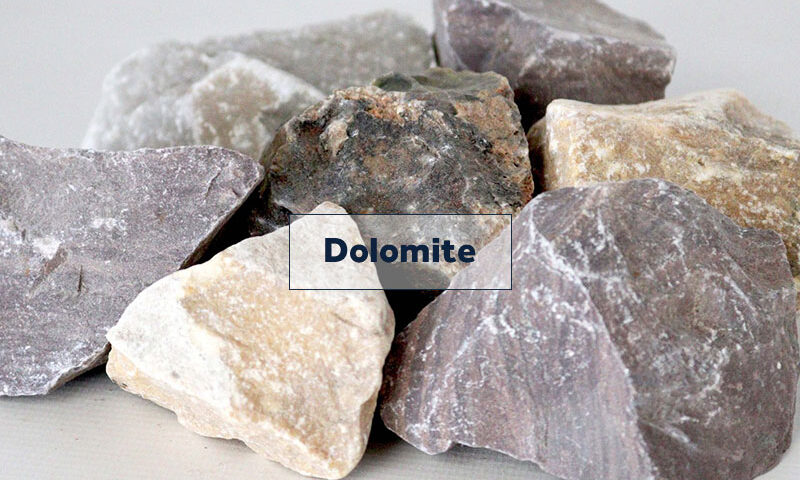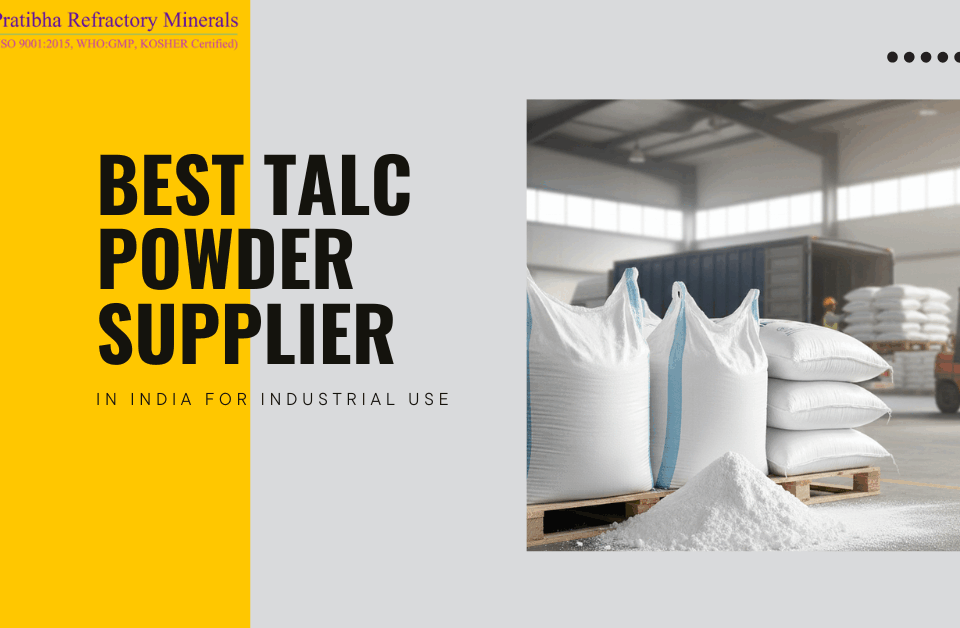- Call for Sales Enquiries

- +91-9413034047
- +91-294-2413244
- info@pratibharefractory.com
8 Industries that Rely on the Availability of Dolomite

What Are the Health Benefits of Dolomite Powder?
August 12, 2024
How to Incorporate Talc Powder into Your Manufacturing?
September 9, 20248 Industries that Rely on the Availability of Dolomite

Dolomite is a common mineral that is composed of calcium magnesium carbonate (CaMg(CO₃)₂) and has applications in many industries. Some of the characteristics that make it a precious material include its high thermal stability and its capability to neutralize acids. Through being a Supplier of Dolomite, Pratibha Refractory Minerals makes sure that construction companies can obtain the quality material they require to construct buildings to the required standards.
1. Construction Industry
Dolomite is widely used in the construction industry as it is one of the most popular materials consumed by this sector. It is employed as a filler in concrete and asphalt mixtures for construction purposes to enhance the sturdiness of roads, buildings, and other structures. Dolomite is particularly suited for the construction of foundations and other structures due to its high compressive strength. Also, it is not affected by weather conditions hence the structures put in place using this material are long lasting.
2. Steel Industry
Dolomite is also used in the steel industry where it plays an important role in the manufacturing process. It is used as a flux to help eliminate impurities like sulfur and phosphorus from molten iron in the steelmaking process. The addition of dolomite in the mix also improves the quality of the steel as it makes it harder and more durable.
3. Glass Industry
Dolomite is widely employed in the glass industry where it is used in the manufacture of different types of glass. The addition of the mineral in the glass mixture reduces the solubility of silica, making the glass more clear and of better quality. Moreover, the use of dolomite enhances the durability and chemical stability of the glass making it suitable for various uses including window glass and laboratory wares.
4. Agriculture Industry
The main use of dolomite in the agriculture industry is in soil conditioning and as a fertilizer. Dolomite improves the acidity levels of soil to make it suitable for plant growth since it has a way of neutralizing acidity. It also supplies other nutrients such as calcium and magnesium that are important for crop growth.
5. Chemical Industry
In the chemical industry, dolomite is used in the production of various chemicals, including magnesium oxide (MgO) which is used in various sectors, from medicines to the production of fire-resistant materials. The use of dolomite in chemical processes as a raw material for magnesium and calcium makes it an important mineral. The chemical manufacturers require high purity of dolomite to be used in their specialized processes.
6. Ceramics Industry
The ceramics industry utilizes the properties of dolomite, especially in the formulation of ceramic bodies and glazes. Dolomite is used as a flux to reduce the firing temperature and improve the strength and toughness of the ceramic products. It also helps in giving the smooth finish and attractiveness of ceramic tiles and other products like pottery. It has dolomite that is used by ceramic manufacturers to meet set standards for the production of quality and beautiful ceramics.
7. Pharmaceutical Industry
Dolomite is employed in the pharmaceutical industry to obtain magnesium, which is an essential component of numerous medicines and dietary supplements. It is an essential nutrient that is involved in a variety of biological processes, such as muscle and nerve function, which means that dolomite is a valuable input for the pharmaceutical industry.
8. Water Treatment Industry
In the water treatment industry, dolomite is used to neutralize acidity and filter out impurities including heavy metals from water. This is because dolomite is alkaline in nature and thus can neutralize acids in water thus making the water safe to use. Dolomite used in water treatment facilities must meet certain quality standards.


